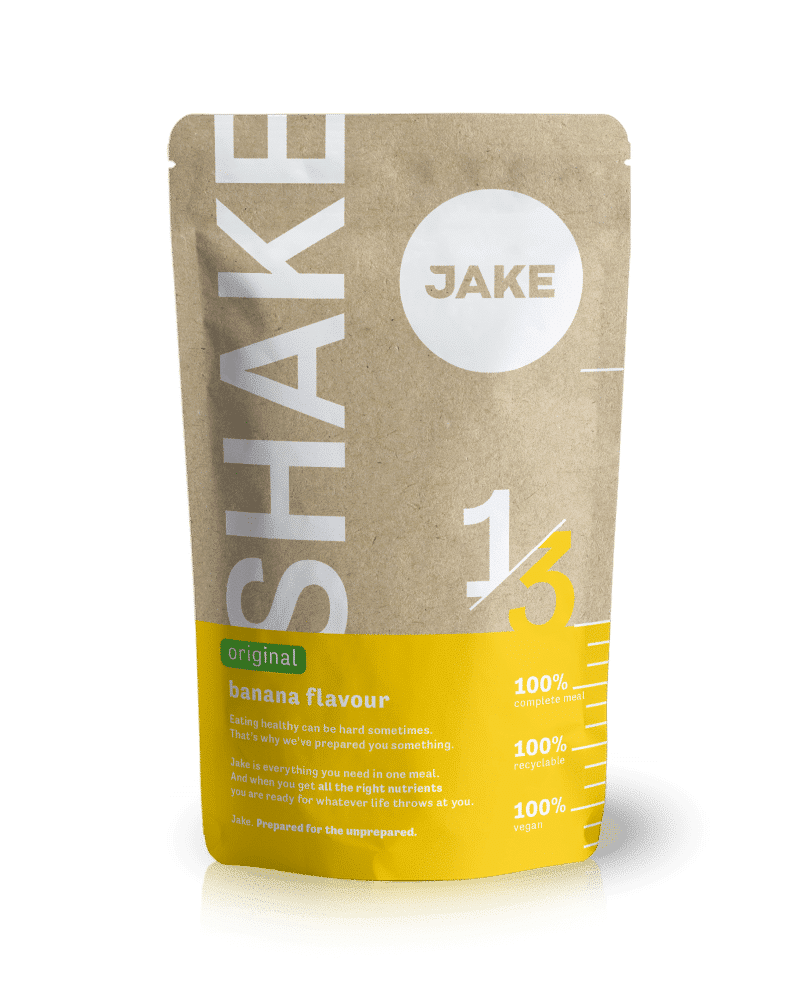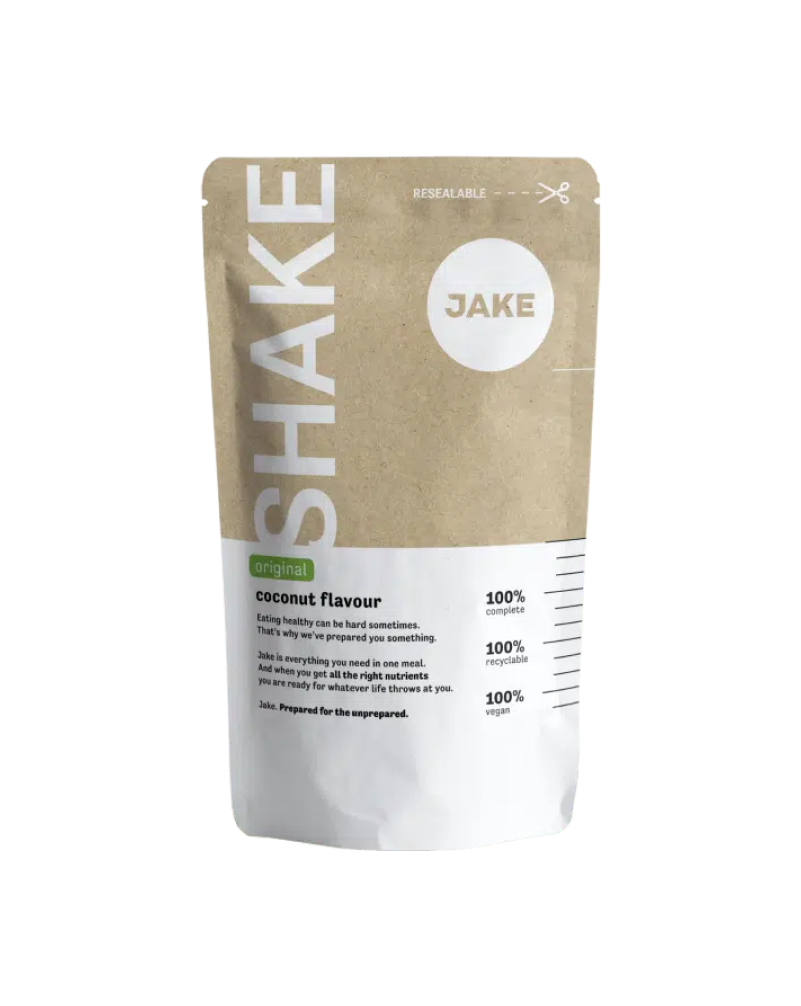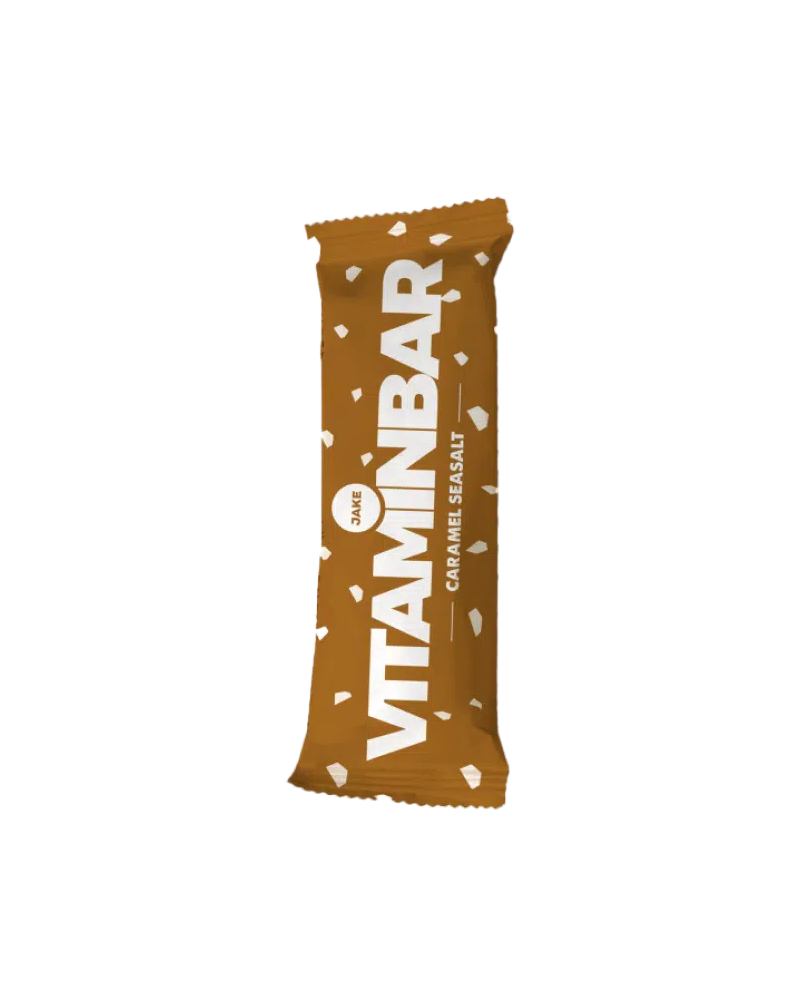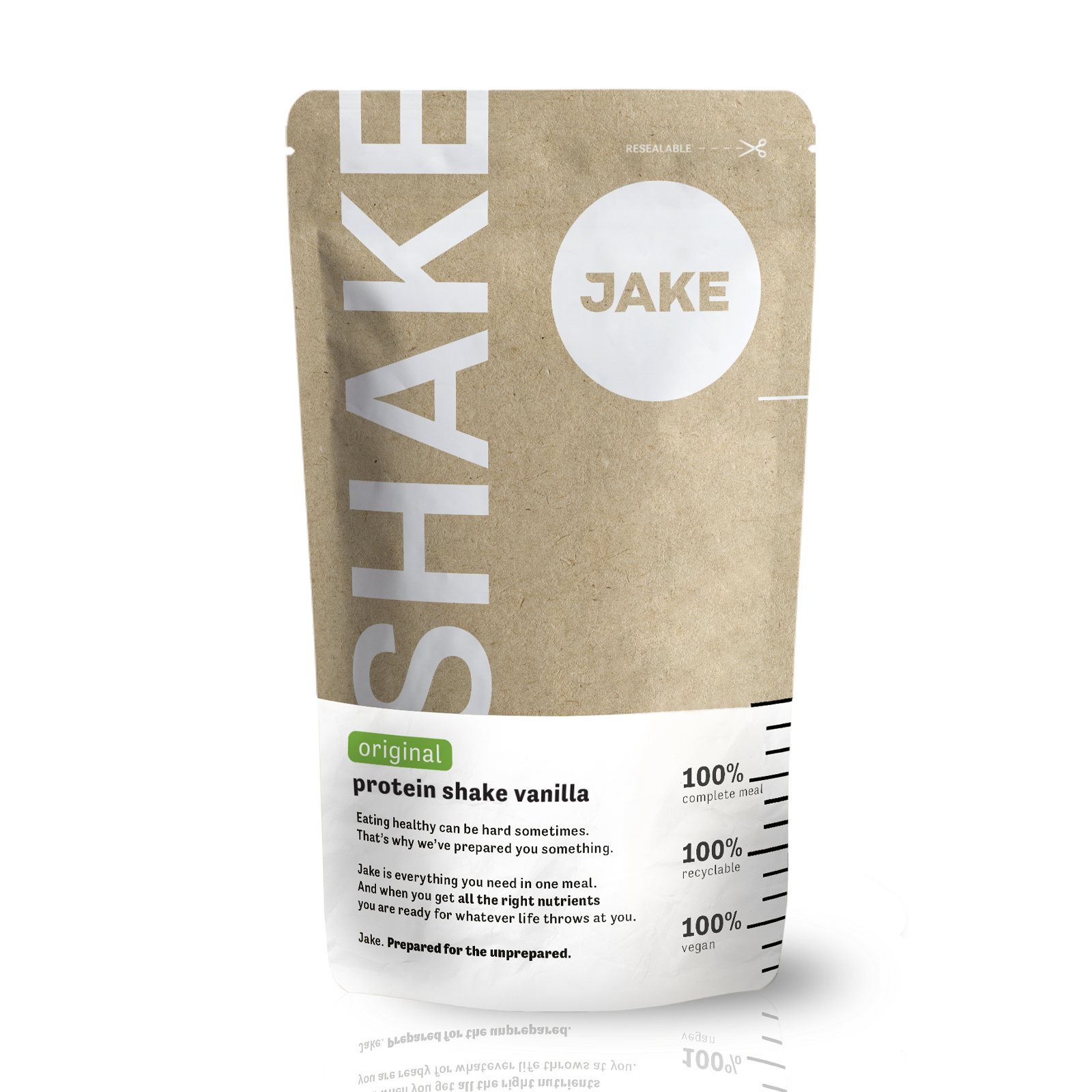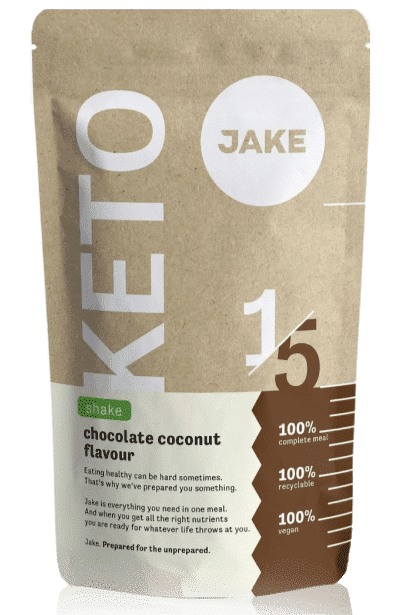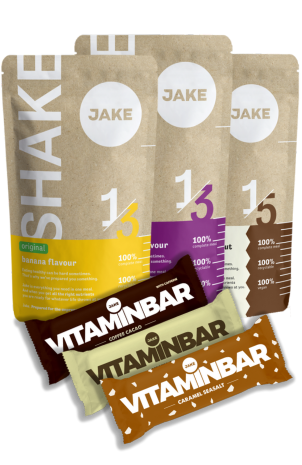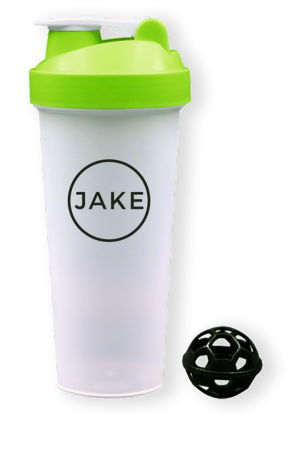What are the benefits of peas in Jake?
Peas are the protein source in Jake’s shakes and bars, you can find them on the ingredient declaration as pea protein isolate. Pea Protein is obtained by a process that includes a dry and a liquid phase. First, during a drying process, the outer shell of the pea (consisting mainly of insoluble fiber) is removed. After grinding, a flour is obtained that contains soluble fiber, starch and proteins. Because pea proteins are water soluble, they can be separated from the fiber and starch by wet filtration and centrifugation. From this solution the protein isolate can be obtained, this is done by adjusting the pH of the solution so that it reaches its isoelectric point and the proteins will precipitate. The obtained protein isolate has a protein content of about 85 to 90%.
It is not just that we use this form of protein in our products. In this article you can find all the reasons why we think peas are the best vegetable protein source you can find.
Pea protein isolate contains a complete amino acid profile
In 2018, research was conducted into the protein content and amino acid composition of commercially available vegetable protein isolates. Ten different protein sources including oats, lupine, wheat, hemp, microalgae, soy, brown rice, peas, corn and potato were compared with animal proteins, including milk, whey, caseinate, casein and egg. The essential amino acid content for pea protein was 30% this is lower than all animal proteins, but it is high enough to meet the essential amino acid requirement of the WHO / FAO / UNU Expert Consultation when pea protein is the only protein source in your diet.
In addition, as the title suggests, all essential amino acids are present in pea protein isolate, even to a greater extent than they are present in animal sources such as egg and casein. Essential amino acids are parts of proteins that you must get through your diet because the body does not make them itself.One small side note to the amount of Methionine, this essential amino acid is only very slightly present in pea protein isolate, but don’t worry. You get enough of this from other dietary sources such as broccoli, Brussels sprouts or spinach.
Comparable digestibility with whey protein
The digestibility of proteins is very important for many (strength) athletes. The most well-known protein that athletes use in their shakes after exercise is whey protein. This protein has a digestion rate of about 90%. This protein is broken down very quickly in the body into amino acids, after which it can be quickly transported through the blood to the correct parts of the body. Pea protein also has a comparable digestion rate of 90%.
L-arginine has a positive effect on the reduction of white adipose tissue
L-arginine is a semi-essential amino acid. Adults can make arginine themselves from the amino acids ornithine, glutamine, glutamate and proline; nevertheless, your daily diet is still the largest source of Arginine. Arginine is an essential amino acid for children and young people because the biosynthesis in this group is still too low. And let arginine be largely present in pea protein, much more than in other protein sources. Studies in obese rats have shown that oral administration of arginine effectively reduces white fat and increases whole-body insulin sensitivity. After 10 weeks of treatment, the rats had 45% less belly fat compared to the control group. There is still not much clarity about how these processes work, new knowledge about the biochemistry and physiology of arginine is expected to help with this. May even find new ways to safely and effectively prevent and treat obesity in humans.
Pea protein has a blood pressure lowering effect
A 2011 study conducted a study of the effect of pea protein on the blood pressure of people with hypertension. The 21 participants received 3mg / day pea protein hydrolyzate for 3 weeks, compared with the placebo, this amount resulted in a reduction of up to 6 mmHg in systolic blood pressure. These results were only visible in week 2 and week 3. In the first week there was still no difference between the two control groups. This reduction in blood pressure is comparable to the mean effect on blood pressure usually obtained by a dose of an antihypertensive agent.
All the benefits of pea protein at a glance
- Pea protein contains a complete amino acid profile. The amounts of the different amino acids are high enough to meet the WHO / FAO / UNU Expert Consultation requirement. A great vegetable alternative to whey protein or casein.
- Comparable digestibility with whey protein. Pea protein, like whey protein, can be considered a fast protein. This means that once consumed, this protein can be broken down quickly and transported to the parts of your body that desperately need it. For example after exercise.
- L-Arginine has a positive effect on the reduction of white adipose tissue. Several studies have shown that the substance L-Arginine can help reduce white fat. Exactly how this works is not yet known, a lot of research is still being done on this. But the fact that it works is a very nice bonus!
- Pea protein has a blood pressure lowering effect. Research indicates that when 3mg / day peas are consumed, there can be a reduction in systolic pressure comparable to the same dose of antihypertensive.
These seem to us to be four very good reasons to use peas as a protein source in almost all products. Are you curious now? You can find all products on our webshop.
